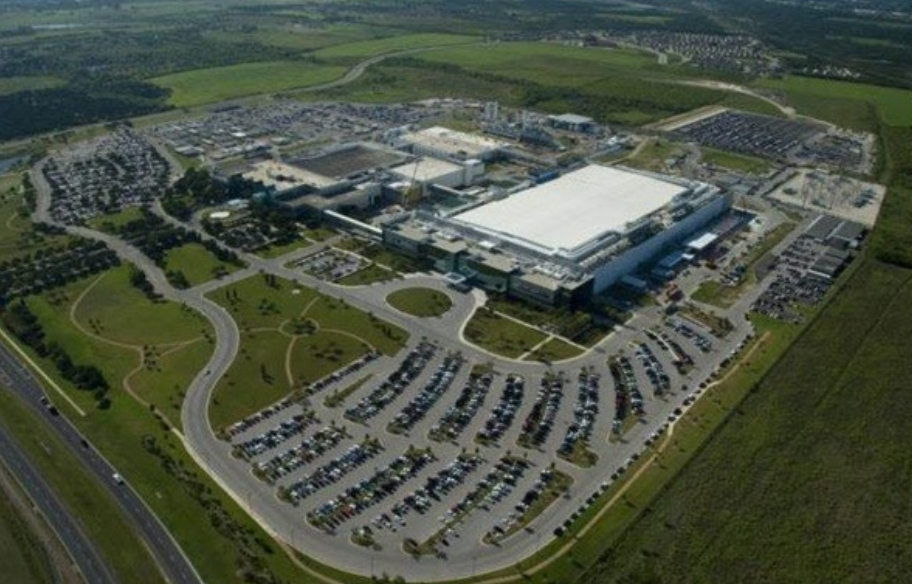Pubblicato :19/05/2021 10:22:22
Fare clic su Conteggio:2103
On May 18, according to a South Korean media "etnews" report, South Korean industry insiders revealed that Samsung has internally decided to invest approximately US$19 billion to build a new advanced manufacturing process in Austin, Texas, where the Samsung wafer fab already exists. The fab will use EUV technology. The project is expected to start in the third quarter of 2021, and the goal is to start production and operation in 2024.

This is the first time Samsung has established EUV production lines overseas, and is expected to focus on advanced 5nm process technology. Samsung’s investment is also in response to the US’s increased demand for advanced process chips and the US government’s decision to re-establish a large-scale investment under the US semiconductor supply chain plan, and the project is also expected to receive support from the US’s US$50 billion chip subsidy program.
Samsung originally had a 14nm/28nm and above wafer fab with mature processes in Austin, Texas. In February of this year, due to a snowstorm in the United States, it was shut down due to a lack of water after a power outage. This also made the supply of US automotive chips even tighter and led to the US government. At the request of the automotive industry, it plans to actively attract overseas semiconductor factories to the United States to set up mass production.
Japan's 8 electronic parts factories expand MLCC and battery production, with an investment of one trillion yen.
Driven by the popularization of electric vehicles and 5G, Japan’s eight large electronic component manufacturers will see a total equipment investment of 1 trillion yen in 2021, an annual increase of about 30%.
Although the epidemic has worsened and semiconductor shortages continue to lead to increased customer inventories, these manufacturers still believe that the medium and long-term market will expand, and look forward to active investment as an expansion performance. According to a report from the Nikkan Kogyo Shimbun on May 18, Kyocera’s equipment investment in 2021 reached 170 billion yen, an annual increase of about 45%, a record high for two consecutive years. President Hideo Tanimoto said that as the company expects strong market demand, the production capacity of 5G-related parts has increased by more than 10% compared with last year.
Kyocera's ceramic packaging is the leader in the global market. The company will invest in the Kagoshima Sawauchi plant in Japan, which is responsible for related businesses, and the Ayabe plant in Kyoto, which is responsible for the organic packaging business.
TDK's 2021 equipment investment amounted to 300 billion yen. The company president Ishiguro Cheng Nao stated that 60% of it will be used for technological innovation and R&D investment in power battery cells. It plans to increase the production of battery cells used in home storage systems and electric vehicles.
According to industry sources, TDK's power battery cells can make electric vehicles easier to get more acceleration than previous lead-acid batteries and cylindrical lithium batteries. Many Chinese manufacturers that produce high-end electric vehicles generally use TDK battery products. .
Although the equipment investment of Murata Manufacturing Co., Ltd., the leading MLCC manufacturer, this year was less than that of the previous year, the company’s President Kikuchi Nakashima included land acquisition in the previous year’s investment. If you only look at the investment in the production line , It is the same as or higher than the previous year. He said that the company's power-use cylindrical battery orders have not yet been fully digested, and he believes that it is necessary to make a certain degree of investment. It is necessary to set up a production line of all-solid-state batteries at the Yasu branch in Shiga Prefecture, Japan, which will be used in wearable products.
Taiyo Yuden's MLCC production capacity in 2021 is also estimated to increase by 10-15% over the previous year, and plans to expand the production capacity of MLCC raw material barium titanate. These Japanese manufacturers are optimistic that there will be more and more electronic parts used in cars and smart phones in the future, and they predict that market demand will rise. However, in the face of changes in market demand, other competitors, and the reduction in demand in the Chinese market, how to enhance the added value of products has become an important task for manufacturers.